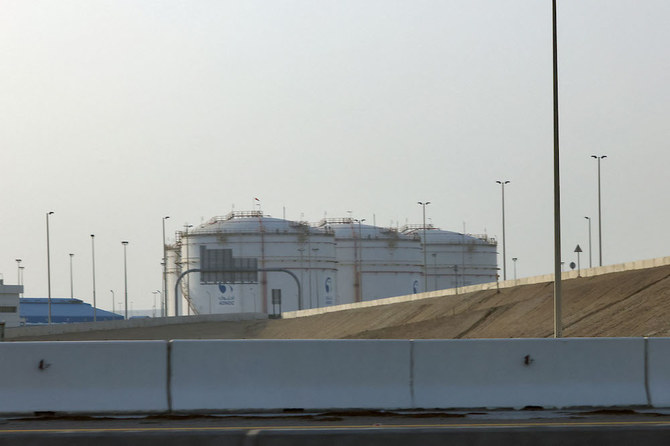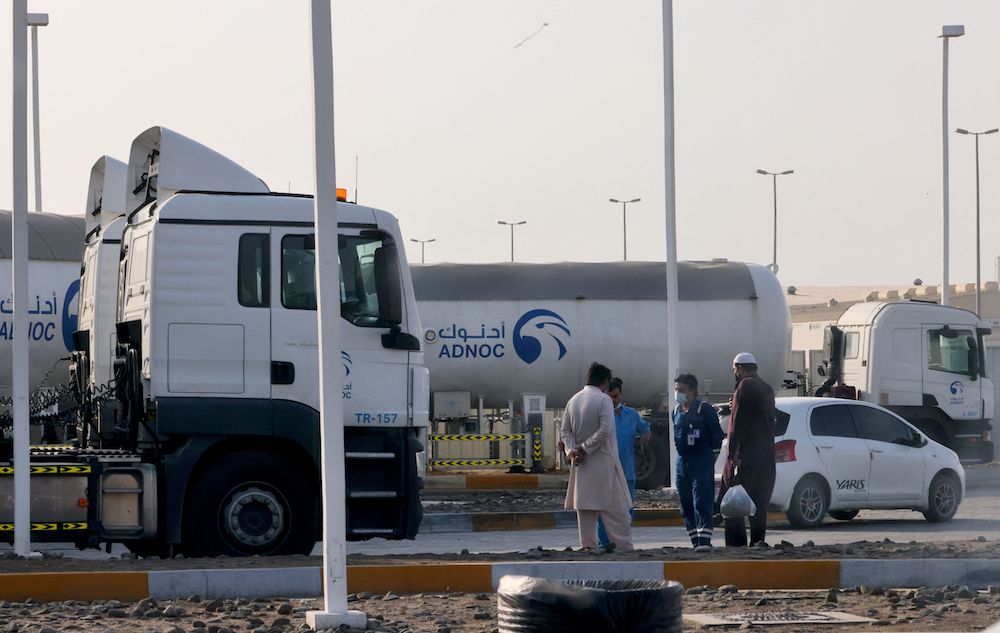DUBAI: Three people — one Pakistani and two Indian — were killed and six others injured after three fuel tankers exploded in the industrial area of Musaffah ICAD 3 near an ADNOC storage unit in Abu Dhabi, Emirates News Agency (WAM) reported.
A fire also broke out at the construction site of the UAE capital’s new airport extension, which was potentially caused by drones, Abu Dhabi police said in a statement carried by WAM.
Ongoing investigations indicate that drone fragments that fell in both locations may have caused the explosion and the fire.
“Initial investigations found parts of a small plane that could possibly be a drone at both sites that could have caused the explosion and the fire,” Abu Dhabi police said, adding there was no significant structural damage.
READ MORE
Saudi Arabia’s Ministry of Foreign Affairs led international condemnation of what it called a “cowardly terrorist attack” that targeted Abu Dhabi International Airport on Monday. Read more here.
The concerned authorities in the UAE are dealing with the “Houthi aggression” on civilian facilities in Abu Dhabi transparently and responsibly, diplomatic adviser to the UAE President Anwar Gargash said in a tweet.
The militia’s violation of the region’s stability is too weak to affect the security and safety of the UAE, he added.
“The fate of this thoughtlessness and reckless foolishness is demise and defeat,” Gargash said.
ADNOC tweeted a statement saying it was “deeply saddened” by the death of three of its employees.
“At approximately 10:00 AM this morning, an incident occurred at our Mussafah Fuel Depot in Abu Dhabi which resulted in the outbreak of a fire, ADNOC is deeply saddened to confirm that three colleagues have died,” it said on Twitter.
“At this time, the entire ADNOC family extends its deepest sympathy to the family and friends of our colleagues who died this morning.
“A further six colleagues were injured and received immediate specialist medical care, professional support teams are supporting the families of all those who have been impacted.
“We are working closely with the relevant authorities to determine the exact cause and a detailed investigation has commenced,” it added.
A spokesperson for Etihad Airways said a small number of flights were briefly disrupted at Abu Dhabi airport due to “precautionary measures,” but normal operations quickly resumed.
Yemen’s Iran-aligned Houthi movement later said it had carried out an attack on the UAE.
Saudi Arabia has led international condemnation of the incident, with the Kingdom calling it a “cowardly terrorist attack.”
The Indian embassy in Abu Dhabi later confirmed in a tweet that it was aware of the incident and was awaiting further details.
Earlier this month, a UAE-flagged cargo ship, “Rwabee,” was hijacked by the Houthis, in a plan the coalition has said was backed by the Iranian Revolutionary Guard Corps.
The ship was on its way from Socotra Island in Yemen to the port of Jazan in Saudi Arabia, carrying medical equipment used in a field hospital on the island, the coalition added.















